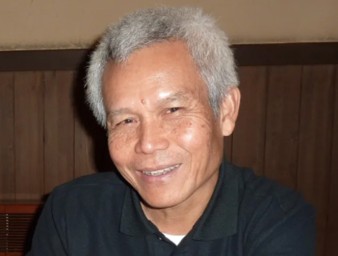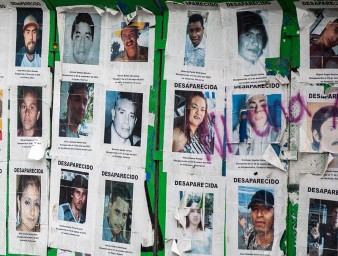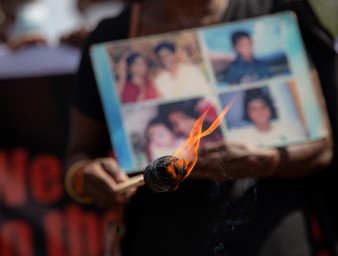In war-torn Sudan, a sister’s search for a disappeared brother
08 November 2023
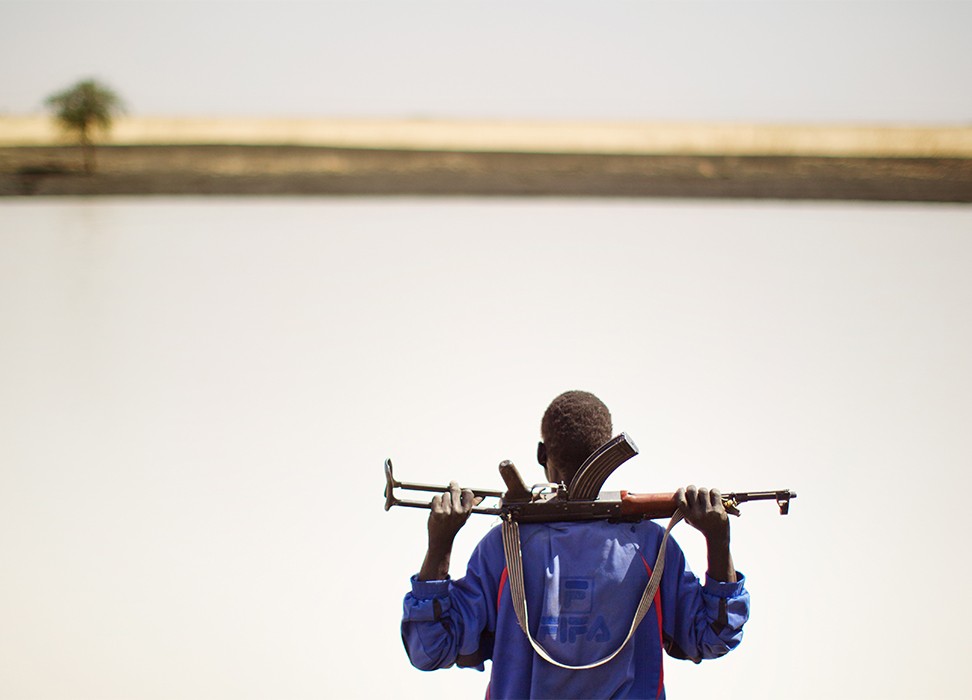
Mohamed vanished without a trace on 29 May, 2023.
The 27-year-old man had set off from a village in northern Sudan to the capital Khartoum when the family lost all contact with him. Hundreds of civilians have been forcibly disappeared by warring parties in the brutal cycle of violence that has engulfed Sudan since April, so Asma, Mohamed’s sister, feared the worst.
“It’s as if our lives had stopped,” Asma told the UN Committee on Enforced Disappearances during a hearing in September, recounting the family’s anguish after Mohamed’s mobile phone suddenly went silent.
She would try to call him, but there was no answer. “We can’t think straight anymore because we’re always thinking about him and how we can reach him. Was he arrested? Was he in an accident? We can’t imagine,” she said.
Taking on the role to lead the family’s search for her brother, Asma reported the disappearance to the Red Cross and to other non-governmental organizations. She also turned to social media, which in Sudan has become one of the main spaces for relatives to report disappearances due to a lack of alternative legal avenues to find disappeared people.
“I noticed that on social media every day there was a large number of people who had disappeared during the war, whose families were not able to find or reach them. There are people of all ages, gender and type. All families here are suffering from disappearances,” she told the Committee.
Illegal detention centres
Mossaad Mohamed Ali, executive director of the non-profit African Centre for Justice and Peace Studies, said the number of forced disappearances in Sudan has skyrocketed since fighting broke out on 15 April between the Sudanese Armed Forces and the Rapid Support Forces.
Enforced disappearance has been a common practice in Sudan for decades and was employed by former President Omar al-Bashir’s state security apparatus to silence human rights defenders and opposition leaders.
Mohamed Ali said now both the Sudanese Armed Forces and the Rapid Support Forces are engaged in random and indiscriminate detention of civilians. In the chaos that has followed the fighting, relatives have nowhere to go to try to find their missing loved ones, he said.
“Their whereabouts are unknown because they are now illegal detention centres. Each group has their own detention centres,” said Mohamed Ali, adding that the locations of such centres remain secret.
According to the non-profit, detainees lack access to lawyers and are subject to torture and other forms of ill treatment. Detainees are also being charged with baseless offences including those that carry the death penalty, it says.
The African Centre for Justice and Peace Studies, which works to fight impunity and promote respect for human rights in Sudan and has been forced to leave the country, took up Mohamed’s case and that of others before the Committee.
“
Hundreds, and likely thousands, are being held incommunicado in appalling conditions.
“
Volker Türk, UN Human Rights chief
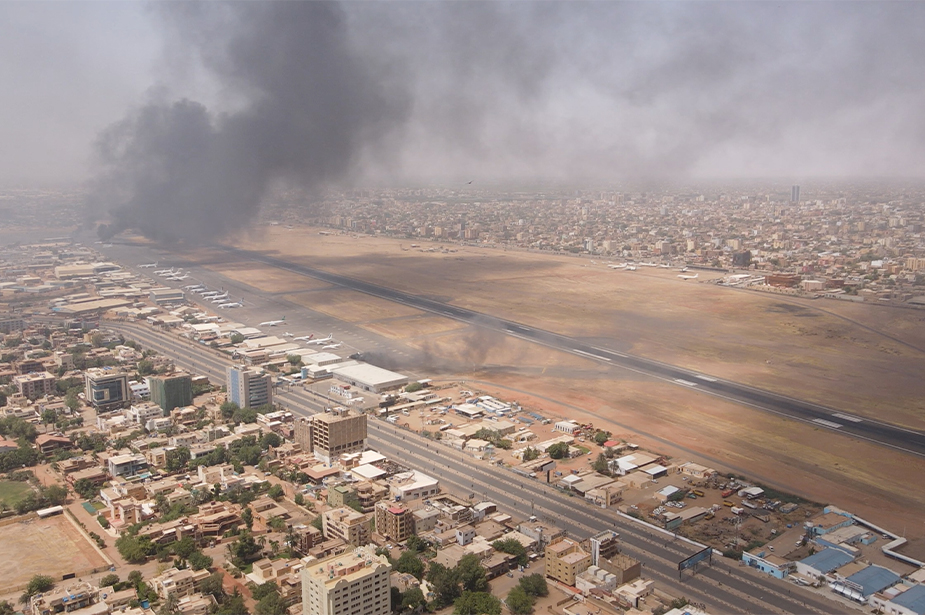
Fighting between the Sudanese Armed Forces and the Rapid Support Forces has killed thousands and uprooted millions from their homes. ©REUTERS
500 disappeared in Khartoum
Volker Türk, UN Human Rights chief, has repeatedly called for an end to the horrific conflict in Sudan, where thousands have been killed, millions have been displaced, and sexual violence is on the rise.
In a speech, Türk told the Human Rights Council on 12 September that at least 500 people were reported to have disappeared in Khartoum alone since fighting broke out.
Addressing the Committee via a video statement, Asma described her brother as a kind young man who had no dealings with the government and was not engaged in politics. She spoke of the mental toll his disappearance had caused on the family, particularly on Mohamed’s father.
“There’s a large number of disappearances since the beginning of the war. Their families don’t have any news about them and aren’t able to contact them, not knowing whether they’re dead or alive,” she said.
Asma was to travel to Geneva to speak before the Committee, but the Khartoum airport was closed due to fighting. Because of a poor internet connection, she could not present her testimony online, so she ended up recording a video.
Committee member Matar Diop said that Sudan had ratified the International Convention for the Protection of All Persons from Enforced Disappearance in 2021, which places an obligation on States to search for disappeared people, investigate their disappearance, bring those responsible to justice and provide assistance to victims and their loved ones.
Under its mandate, the Committee can request an urgent action to a State to immediately take all necessary measures to search for, locate and protect a disappeared person, and investigate the disappearance.
Social media
Like many, Asma took her search to social media. With the war in its seventh month, social media platforms in Sudan, including one on Facebook called “Missing,” are flooded with posts from desperate relatives asking for any information that might lead to the whereabouts of loved ones.
The short texts include a photo and a phone number. One appeal tells of Abdul, who suffers from Alzheimer’s disease and disappeared outside his home wearing a brown robe. Another shows a picture of a smiling, baby-faced youth named Othman, 18, who disappeared with four friends. A third one recounts the case of Mubarak, 31, who disappeared during Eid. “Please, whoever recognizes him, contact this number,” it reads. Most posts have prayers and heart emojis.
Mohamed, Asma’s brother, is now a symbol of hope: five months after being captured in Bahri, a city north of Khartoum, he was recently located, alive. Citing concerns for their safety, the family has provided no details of Mohamed’s odyssey nor of the identity of the captors.
When she spoke before the Committee, Asma said that no one should be forcibly disappeared nor suffer what her family has gone through.
“I wish there would be a law to criminalize these acts and what is causing these enforced disappearances,” she said. “There’s no right. No one has the right to do that.”
